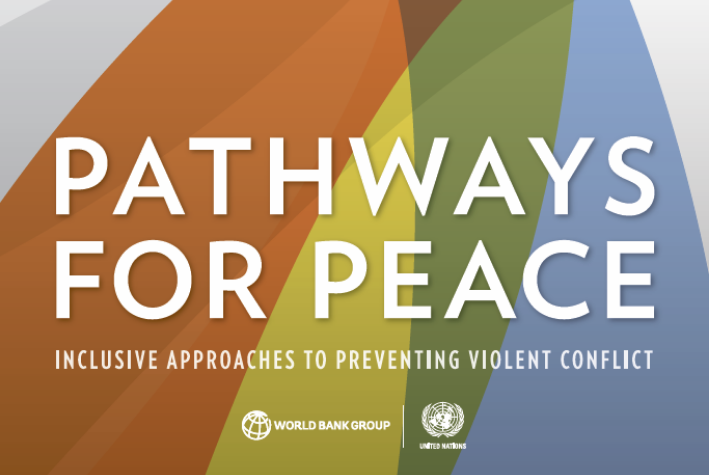Who we are
Our Work
Peloria draws on qualitative knowledge to inform artificial intelligence methods that advance our understanding of the complex and dynamic relationships between economic, security, environmental, cultural, and demographic factors. Our deep learning methods employ NLP and orthodox data to develop predictive capacity in relation to change in social phenomena like violence, social unrest, poverty, and their effects on broader political and economic issues, including supply chain disruption.
The term “Peloria” colloquially refers to un-observable structure or pattern in irregular or unstructured flowers. Many phenomena in society also lack observable patterns when viewed through the human eye. By employing cutting edge social science and artificial intelligence methods Peloria sees unseeable patterns, enabling prediction, pre-emption, and preparation for social phenomena.
Leveraging our cutting edge methodologies, we provide forecasting of social unrest and economic change, as well as data-driven risk-reduction advisory services.
Our Mission
To bring government, civil society and the private sector together around evidence-based approaches to inclusive, just, and resilient societies.
Our Story
Peloria was born out of the intentional partnership formed between a team of diverse disciplines and intersecting interests. The term “Peloria” refers to the unobservable pattern existing in apparently irregular flowers.
Peloria’s founders come from different but critically complimentary areas of expertise. In 2017, Peloria’s CEO, Dr. Chris Mahony, was a contributing author of the first-ever joint United Nations-World Bank report on Conflict Prevention, “Pathways for Peace: Development Approaches to Prevention of Violent Conflict”. As a Strategic Policy Advisor at the United Nations Development Program, part of his portfolio was to identify conflict prevention knowledge gaps and innovative methods that might advance knowledge and capacity to prevent violent conflict. Dr. Mahony was particularly interested in the utility of emergent measures of language text data, such as natural language processing (NLP) for monitoring public sentiment.
It was also at this time (2017) that Dr Mahony’s existing interest in the relationship of language to violence was reinvigorated after he narrowly avoided a terrorist attack in Charlottesville, Virginia. He had been participating in an anti-racism protest against a white nationalist rally. He was asked by media about the relationship between the language surrounding the events and began to consider how that language might be better measured.
Chris began exploring the scope for testing the relationship between online language sentiment and changes in violence. He focused, initially on the role of influential actors in shaping public sentiment towards or away from violence. With the support of the LSE-Oxford Commission on State Fragility, a part of the International Growth Centre, he tested the relationship between influential actors’ language and violence and made the groundbreaking discovery that change in Twitter language sentiment predicted change in violence with 84.5% accuracy 100 to 125 days into the future.
This cutting-edge research paper was presented at the OECD, the British Foreign Office, the United Nations, the Dutch Ministry of Foreign Affairs, the US Department of State, and the US Department of Defense Advanced Research Projects Agency (DARPA). It was at one of these presentations that Dr. Rohini Srihari’s pioneering work surrounding the leveraging of innovative NLP methods for predictive capacity was brought to his attention. The paper was presented at the United States Institute of Peace (USIP), where Dr. Rohini Srihari (now Peloria’s Chief Data Scientist) then served as Chief Data Scientist at USIP’s Peace Tech Lab. Rohini had previously founded, successfully exited and inspired start-ups among her many students and professional interlocutors.

United by the vast potential of a multidisciplinary approach to data analytics, Rohini, and Chris began discussing how social science knowledge could enhance the performance of data science methods. They conceptualized a commercial enterprise tied to the mission of using objective data to unite civil society, the private sector, and government around demonstrated evidence of the drivers of social phenomena. To do so, they knew they had to produce something special, something that could begin to unlock the complex and dynamic relationship between the many real and perceived factors that inform human behaviour.
Peloria is quickly growing. It is rolling out models in East Asia, South Asia, Africa and the Americas in response to demand for its innovative data analytics. As more unseeable patterns are illuminated, societies become more inclusive, just, and resilient.
Current Work
Peloria is expanding its research projects in collaboration with G7 governments as well as academic institutes and independent agencies.
Current projects range from predicting population movement in Africa, to predicting crime in Asia-Pacific, to predicting violent conflict in Eurasia.
